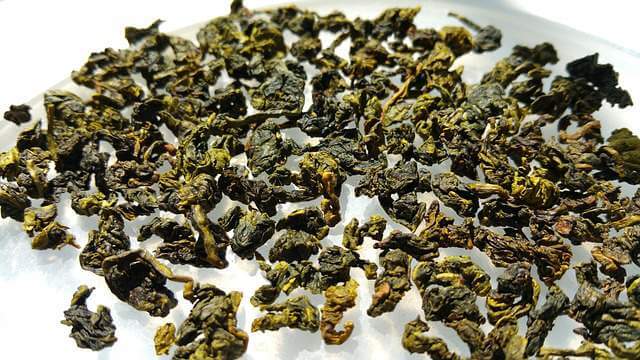Oolong tea is closely related with weight loss and enhanced immunity. Research shows that drinking two cups of oolong tea every day helps reduce obesity and fat index. What makes it so special? Well, oolong tea is packed with antioxidants, vitamins (A, C, E, K), important minerals like selenium, calcium, magnesium and potassium. It also contains active ingredients like folic acid, niacin and detoxifying alkaloids that are responsible for weight loss. But is it really beneficial for health? Let’s find out.

Oolong Tea- Magical Ingredient Facilitating Weight Loss
Oolong is a partially oxidized, traditional Chinese tea extracted from stems and leaves of Camellia sinesis plant, which is also used for manufacturing green and black tea varieties. It is an intermediate of both tea varieties and contains important polyphenols that activate fat-metabolizing enzymes in our body. Depending on its preparation process, the tea may taste earthy, thick, sweet, fruity or strong.
Fat Metabolizing Elements of Oolong Tea
Polyphenols: According to a report published in The Journal of Nutrition (September 2014), Polyphenols (mainly Cathechins) present in oolong tea can result in fat loss, even if the user consumes a high-sugar diet. Another review article printed in the American Journal of Clinical Nutrition (October 2013) says that Cathechins accelerate metabolism, which indirectly boosts weight loss.
Caffeine: Caffeine is yet another substance that facilitates burning of fats and helps maintain lean body mass, as published in a review article in Physiology & Behavior (April 2010). Secondly, American Journal of Clinical Nutrition (November 2009), includes an article that says both caffeine and catechins work together to boost weight loss.
What are the Benefits of Consuming Oolong Tea?
- Oolong antioxidants enhance fat metabolism by 10% and maintain high energy levels within 2 hours of consumption.
- When consumed three times a day, polyphenols present in oolong tea block absorption of dietary fats and cholesterol inside body. They boost your body’s energy expenditure up to 50%.
- Oolong ingredients stabilize blood sugar and keeps you full for a long time, thus suppressing occasional cravings for unhealthy sweets and snacks.
- By balancing sugar levels in blood, Oolong tea prevents the risk of type II Diabetes. It regulates insulin production inside your body and prevents sudden dips or spikes in bloodstream that can affect diabetic’s health. Therefore, nutritionists recommend users to drink oolong tea to prevent late night sugar cravings.
- Tea nutrients target harmful LDL cholesterol deposition inside arteries. It trims down fat deposited in upper arms, abdomen and thighs.
- Cardiologists recommend Oolong tea for it sculpts down triglyceride concentration, regulates cholesterol metabolism and increases plasma adiponectin in blood. It is necessary to maintain high levels of plasma adiponectin as it prevents heart attacks, arteriosclerosis and CAD (coronary artery disease), thereby boosting heart health.
- Calcium and magnesium present in oolong tea are beneficial for healthy teeth and bone. These minerals protect teeth from bacterial acids, inhibit bacterial growth, prevent bad breath and check plaque deposition. They also prevent loss in bone mineral density, help our body cells absorb essential minerals from food, prevent bones from becoming brittle or fragile due to old age and maintain a strong bone structure.
- It enhances your body’s ability to fight diseases and infections caused by bacteria, viruses etc., boosts the production of anti-bacterial proteins and strengthens your body’s immunity. When consumed for a long time, oolong damages free radicals that can cause cancer.
Other than these benefits, Oolong tea also reduces stress, which is a key factor in weight gain. Therefore, regular consumption of Oolong tea will not only help you maintain a leaner frame but also reduce stress induced health risks.
How to Use Oolong Tea for Weight Loss?
Based on a study published in European Journal of Nutrition (April 2013), drinking hot tea has a direct effect on body mass index. Those who drink iced tea are likely to have larger weight circumferences and higher BMIs. Therefore, you should stick to a piping hot cup of freshly brewed tea.
When preparing tea, make sure that you maintain a steady temperature of 194 degrees Fahrenheit. Do not steep the tea for more than 4 minutes (Source: International Journal of Molecular Sciences, December 2007).
Green Tea vs. Black Tea vs. Oolong Tea
When purchasing tea, people often are often confused about the different varieties. Black tea contains caffeine in high quantities, which may result in dehydration. Secondly, green tea contains high amounts of Catechins that are processed into Theaflavins that may suppress hunger. Compared to these, oolong tea, being partially fermented, is best suited for dieting since it contains intermediates between Catechins and Theaflavins which can be considered as a healthy combination.
How to Obtain Maximum Benefits from Oolong Tea?
Chinese Journal of Integrative Medicine (February, 2009) says that drinking oolong tea for one month decreases body fat and weight. If you wish to accelerate the benefits of this tea variety, make sure that you follow a balanced diet and indulge in physical activities. With this, you’ll be able to get rid of those few extra pounds in a jiffy.
